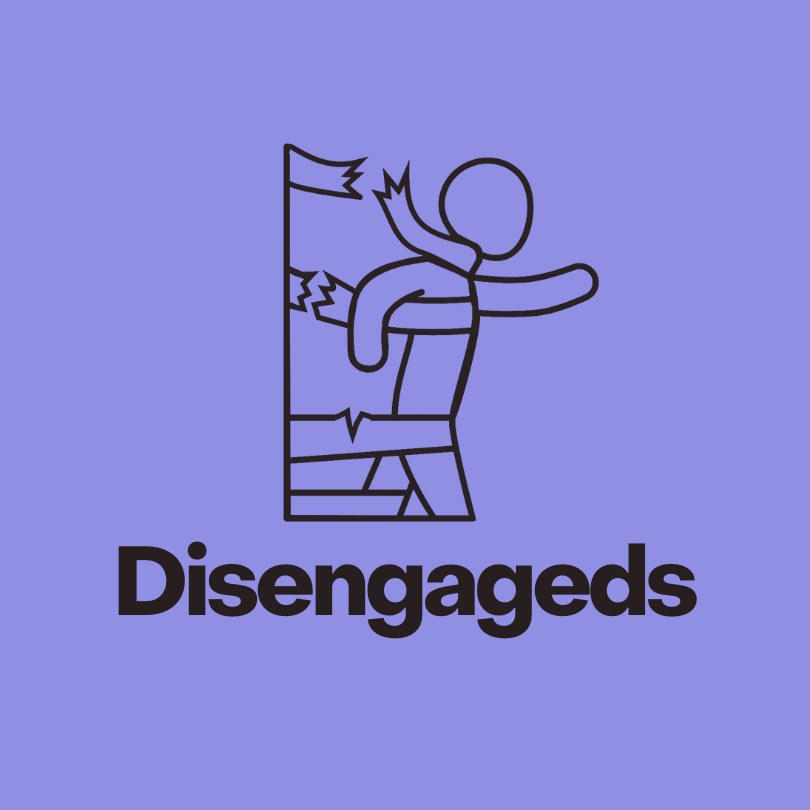
The Four Types
Religious Disengageds
Who are the Religious Disengageds?
About one in three non-religious Americans are classifed as 'Disengageds.' On every measure of both religion and spirituality, the Disengageds score the lowest. When asked about the afterlife, 77% of them believed that when they died, their existence ends. However, only a small portion of the Disengageds want to see religion eliminated in the United States.
Quick Stats
33% of all nones are Disengageds
98% Attend religious services seldom/never
99% Pray seldom or never
0.2% Believe in God without a doubt
89% of Disengageds say they trust Religion “Not at All”
Notes on Disengageds
The data paints a compelling picture of the Disengageds—individuals who, for all intents and purposes, have no use for religion in their lives. They almost never pray, almost never attend services, and express little to no religious belief. Disengageds tend to skew a bit older than the other groups, and the overall impression from the data is that while they dislike religion and its influence on American life, they aren’t particularly motivated to oppose it publicly.
From the Research
How Disengageds self-identify
How Disengageds rate religious and spiritual importance in their lives.
“In an initial study, the researchers asked 114 individuals who said they were once – but no longer – religious to write about their primary reason for the change. Fifty-two percent cited intellectual reasons, such as a perceived incompatibility of their previous religious beliefs with science or logic, or described how they simply “outgrew” their old beliefs. Twenty-two percent described how they couldn’t be part of an institution they felt caused trauma to themselves or others or perpetuated hatred toward particular groups they supported. Fifteen percent wrote about experiencing personal adversity they couldn’t reconcile with their beliefs. Finally, 11% noted social reasons, such as feeling like they didn’t “fit in” with a religious community.”
STay In the Loop
Want to learn more about the Nones? Sign up for our email list to hear about upcoming classes, new research posts, and media appearances.




